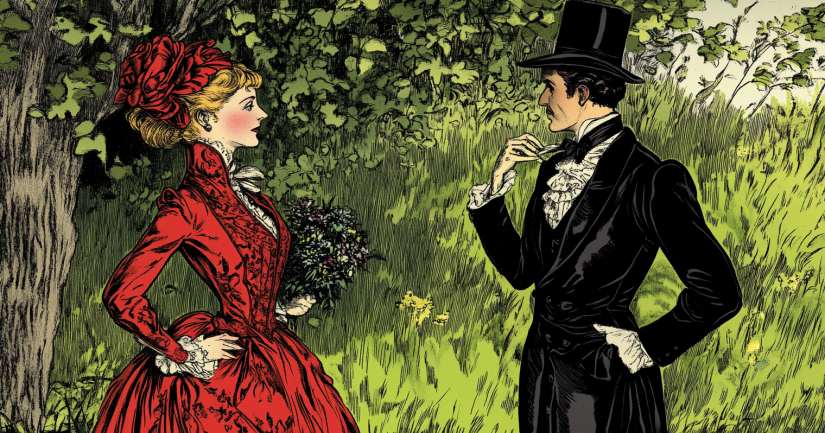
Lies become lifestyles, names are never what they seem, and cucumber sandwiches lead to chaos this The Importance Of Being Earnest True Or False Quiz offers a fast-paced, entertaining way to test your knowledge of Oscar Wilde’s most deliciously deceptive comedy. From character motivations to plot twists and Wilde’s razor-sharp satire, these true-or-false questions challenge how closely you’ve been paying attention to every word, wink, and Wildean reversal in the play.
Designed for quick engagement and deep insight, this quiz strips away the multiple-choice clutter and focuses on clarity. Each statement asks you to decide: Did that really happen? Did they really say that? Is that truly what Wilde meant? With every correct answer, you’ll gain a sharper understanding of the story’s events, character relationships, and literary techniques all wrapped in Wilde’s signature paradox and playfulness.
Think you can separate fact from fiction in this hilarious play? If you love identifying quotes, challenge yourself with the The Importance Of Being Earnest Quote Identification Quiz. Need to brush up on the play’s sequence? Try the The Importance Of Being Earnest Order Of Events Quiz. And if you want to prove your expertise, go for the The Importance Of Being Earnest Full Book Quiz.
Step Into the The Importance Of Being Earnest True Or False Quiz
What This True Or False Quiz Will Cover
Expect statements drawn from all three acts, covering topics like:
- Character identities and deceptions
- Key plot developments and turning points
- Relationships, proposals, and engagements
- Famous quotes and who said them
- Literary techniques such as irony, satire, and dramatic structure
- Wilde’s social commentary and thematic layers
Each statement is crafted to mix obvious truths with subtle tricks—just like Wilde himself.
Sample Topics and Themes You’ll Explore
To succeed on this quiz, you’ll need to know whether statements like the following are true or false:
- Jack invents a brother named Ernest so he can escape to the country.
- Algernon writes Cecily love letters before they meet in person.
- Lady Bracknell is pleased that Jack was found in a handbag.
- Cecily is Jack’s niece and legal ward.
- Gwendolen refuses to marry Jack once she learns his real name.
- Miss Prism lost a baby at Victoria Station by leaving him in a handbag.
- The name “Ernest” symbolizes truth and moral integrity.
- Jack and Algernon turn out to be brothers by blood.
- “The truth is rarely pure and never simple” is spoken by Miss Prism.
- Wilde uses farce and satire to critique Victorian ideals of marriage and status.
These questions mix factual recall with deeper comprehension of subtext, tone, and character motivations.
You’ll sharpen your ability to:
- Distinguish surface-level facts from deeper satire
- Catch small inconsistencies or misleading character claims
- Recognize how structure and language shape meaning
- Remember where and when each key event took place
Fun Facts to Prepare You for the Twistiest Questions
- Jack’s real name actually is Ernest, but he doesn’t learn that until the final scene
- Cecily records her entire “romance” with Algernon before they meet, including their engagement
- Every major character lies at some point but rarely about what really matters
- Wilde’s humor works best when the audience knows more than the characters, making dramatic irony a central device
Who Should Take This Quiz
This quiz is great for:
- Literature students reviewing for tests or essays
- Teachers introducing key concepts through fast-paced review
- Theatre fans preparing for performance or script study
- Wilde lovers looking for a fun, brain-twisting challenge
- Anyone who enjoys rapid-fire literary fun with a satirical edge
It’s short, sharp, and endlessly replayable just like Wilde’s best one-liners.
Truth, Lies, and Everything In Between
Wilde once wrote, “The pure and simple truth is rarely pure and never simple” and this Importance Of Being Earnest True Or False Quiz proves it. With every question, you’ll uncover whether your understanding is grounded in fact, fiction, or Wildean flair.
Take the quiz now and find out: can you tell when Wilde is joking, when he’s revealing truth, or when he’s doing both at once?
The Importance of Being Earnest Quizzes – Are you as witty as Wilde?
The Importance Of Being Earnes General Knowledge – FAQ
The play explores several themes, including the nature of identity, the triviality of social norms, and the constraints of marriage. Through its characters and plot, Wilde examines the duplicity of personal and social identities, the superficiality of the upper class, and the conflicts between genuine emotions and societal expectations.
Wilde employs a variety of linguistic techniques to enhance the comedic effect, such as puns, epigrams, and paradoxes. His use of witty dialogue and humorous situations allows characters to express the absurdity of their social world, creating a humorous yet critical commentary on Victorian society.
The play has had a lasting impact on modern theater and culture by inspiring countless adaptations and influencing comedic writing. Its enduring popularity is a testament to Wilde’s skill in blending humor with social critique, making it a staple in both academic study and theatrical performances worldwide.
